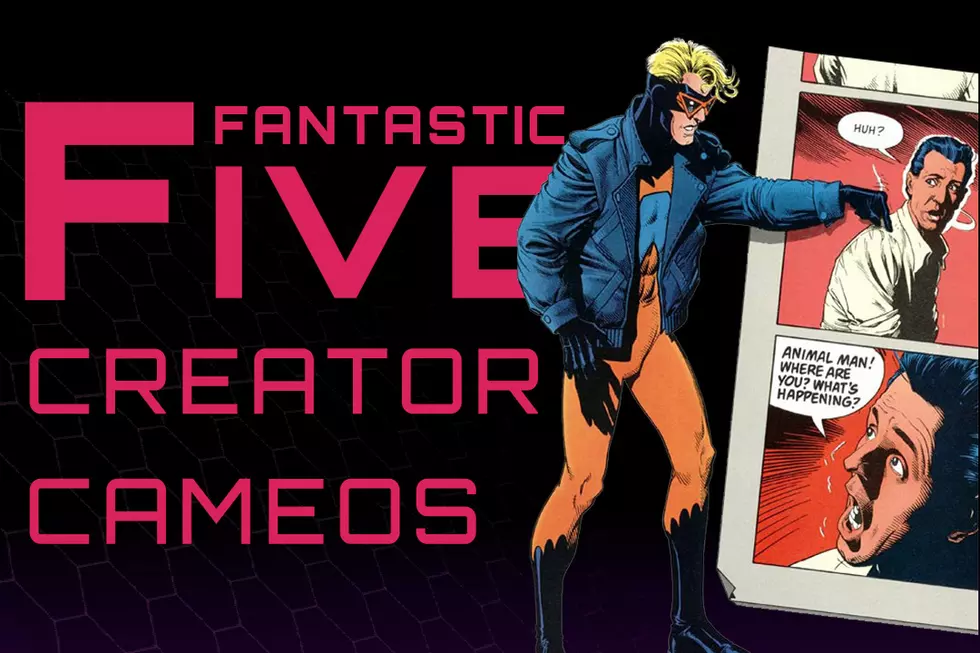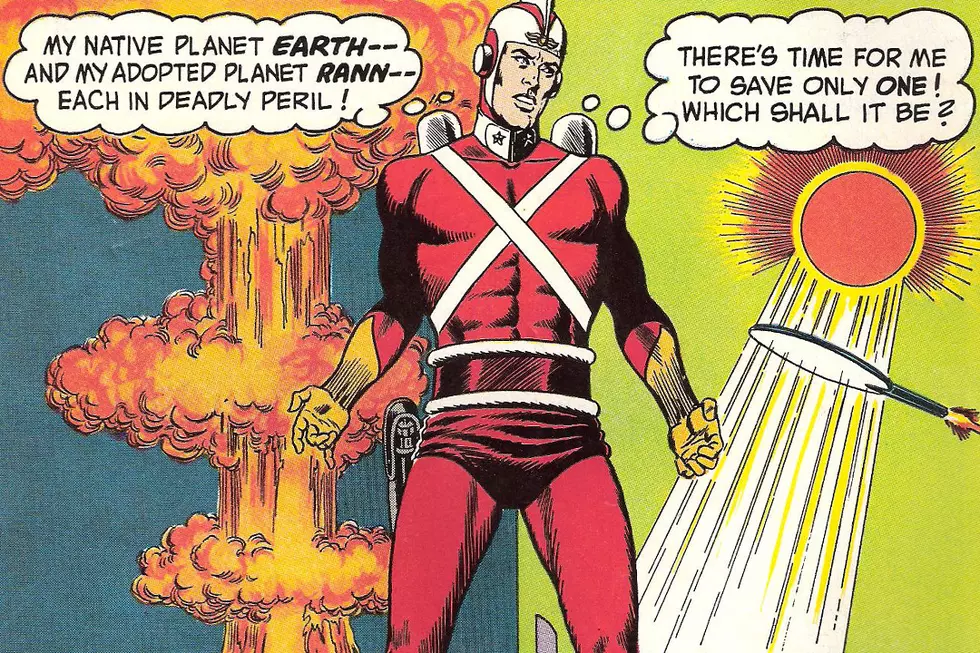
How Julie Schwartz Helped Create the Silver Age of Comics
Julius “Julie” Schwartz was born on this day in 1915. Schwartz was a literary agent, early fanzine editor and convention organizer, but he is perhaps best known as one of the most prominent editors at DC Comics and, ultimately, the midwife of the Silver Age of Comics.
Schwartz's career in publishing would begin in 1932, when he, together with Mort Weisinger and Forrest J Ackerman — who would go on to have distinguished careers of their own: Weisinger as a comic book editor and Ackerman as a writer and editor, perhaps best known for the magazine Famous Monsters of Filmland — co-published Time Traveller, one of the first science fiction fanzines. Following this, Schwartz and Weisinger would go on to found the Solar Sales Service literary agency, where they would represent such notables as Ray Bradbury, Robert Bloch, and HP Lovecraft.
By 1944, Schwartz had left being a literary agent to become an editor at All-American Comics, one of the publishers that would eventually be folded into DC Comics. His experience with science fiction would eventually help him revolutionize the entire field of comics. The superhero genre had declined in popularity after World War II, but due to the efforts of men such as Frederick Wertham, popular genres such as crime and horror were no longer allowed on the stands in any recognizable fashion. Schwartz decided it was perhaps time to give superheroes another shot.
He assigned writer Robert Kanigher and artist Carmine Infantino to introduce a new version of the Flash in 1956, but with a new, science fiction-tinged approach: the first appearance of Barry Allen in Showcase #4 is widely recognized as the first comic of the Silver Age.
Schwartz would go on to launch new versions of the Green Lantern, Hawkman, and the Atom, as well as creating the character of Adam Strange and revamping the Justice Society as the Justice League, all with a sci-fi edge for an atomic age. Additionally, Schwartz oversaw the “New Look” era of Batman starting in 1964, which saw a departure from the strange and arguably juvenile adventures centered on Bat-Mite and Ace the Bat-Hound of the 1950s and a return to the classic rogues' gallery of the Golden Age.
The massive success of these books — together with his colleague Mort Weisinger's work on the Superman family of titles — would go on to inspire the creation of the Fantastic Four, and the rest, as they say, is history.
In addition to his major hands-on role in the advent of the Silver Age, Julie Schwartz was no slouch in the transition into the era of comics known as the Bronze Age. In fact, the handing off of the Superman family of titles from Weisinger to Schwartz in 1971 is considered one of the chief milestones in the move from the Silver to Bronze Age.
Schwartz was a champion for the work of creators such as Denny O'Neil and Neal Adams, whom he would assign to revitalize Batman by returning him to his “weird avenger of the night” roots. He would also hire O'Neil to revamp Superman by reducing his powers and removing kryptonite, which he saw as a storytelling crutch, from the picture. Although these specific changes didn't stick, nevertheless the approach to Superman was changed for a new age.
Schwartz was known for being a very hands-on editor, often working out storylines with his writers in story conferences, and even doing quite a bit of rewriting once scripts were handed in. To call him the co-writer of many of the most important developments in DC history — including the introduction of the multiverse — would hardly be an overstatement.
He retired in 1986, the year DC officially brought an end to the Silver and Bronze Ages — his ages — of comics, but he remained active in the comics and science fiction communities until his death in 2004.
His auto-biography, Man of Two Worlds: My Life in Science Fiction and Comics, co-written with Brian Thomsen, was released in 2000.
For his nearly unparalleled contributions to the medium of comics, Julie Schwartz has received numerous awards, including induction into both the Jack Kirby and Will Eisner Halls of Fame, but has also had an award named after him. The Julie Award is presented to recognize a lifetime of achievement in genre fiction throughout a variety of media. Recipients have included Ray Bradbury, Neil Gaiman, Harlan Ellison, Leonard Nimoy, and Neal Adams.
Let us all take today to remember and celebrate a man who was truly a giant in his field. Happy birthday, Mr Schwartz!
More From ComicsAlliance





![Five Stars: Starting At The End With Jeff Smith [Interview]](http://townsquare.media/site/622/files/2017/03/FiveStars-Smith.jpg?w=980&q=75)

![The Autobiography Of Loma: ‘Shade The Changing Girl’ #7 [Exclusive]](http://townsquare.media/site/622/files/2017/03/STCG_Cv7_featured.jpg?w=980&q=75)

